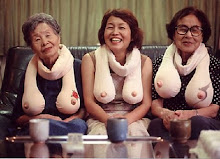The Obama campaign's deep understanding of delegate selection and its tactical use of the rules is one key reason he was able to overcome Clinton's start-up advantage.
What made it especially hard for Clinton to catch up was that Obama understood and took advantage of a nominating system that emerged from the 1970s and '80s, when the party struggled to find a balance between party insiders and its rank-and-file voters.
Until the 1970s, the nominating process was controlled by party leaders, with ordinary citizens having little say. There were primaries and caucuses, but the delegates were often chosen behind closed doors, sometimes a full year before the national convention. That culminated in a 1968 national convention that didn't reflect the diversity of the party—racially or ideologically...
One big change was awarding delegates proportionally, meaning you can finish second or third in a primary and still win delegates to the party's national convention. As long candidates get at least 15 percent of the vote, they are eligible for delegates.
The system enables strong second-place candidates to stay competitive and extend the race—as long as they don't run out of campaign money...
Another big change was the introduction of superdelegates, the party and elected officials who automatically attend the convention and can vote for whomever they choose regardless of what happens in the primaries and caucuses.
Superdelegates were first seated at the 1984 convention. Much has been made of them this year because neither Obama nor Clinton can reach the number of delegates needed to secure the nomination without their support...
A more subtle change was the distribution of delegates within each state. As part of the proportional system, Democrats award delegates based on statewide vote totals as well as results in individual congressional districts. The delegates, however, are not distributed evenly within a state, like they are in the Republican system.
Under Democratic rules, congressional districts with a history of strong support for Democratic candidates are rewarded with more delegates than districts that are more Republican. Some districts packed with Democratic voters can have as many as eight or nine delegates up for grabs, while more Republican districts in the same state have three or four.
The system is designed to benefit candidates who do well among loyal Democratic constituencies, and none is more loyal than black voters. Obama, who would be the first black candidate nominated by a major political party, has been winning 80 percent to 90 percent of the black vote in most primaries, according to exit polls.
It wouldn't have worked without such a strong candidate, though, according to a former DNC chairman who supports Clinton.


No comments:
Post a Comment